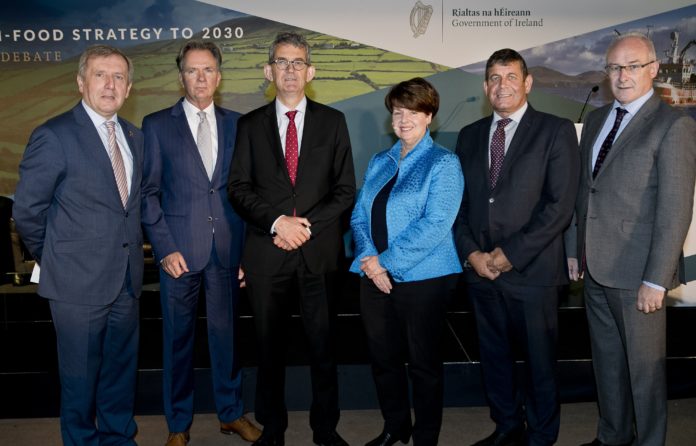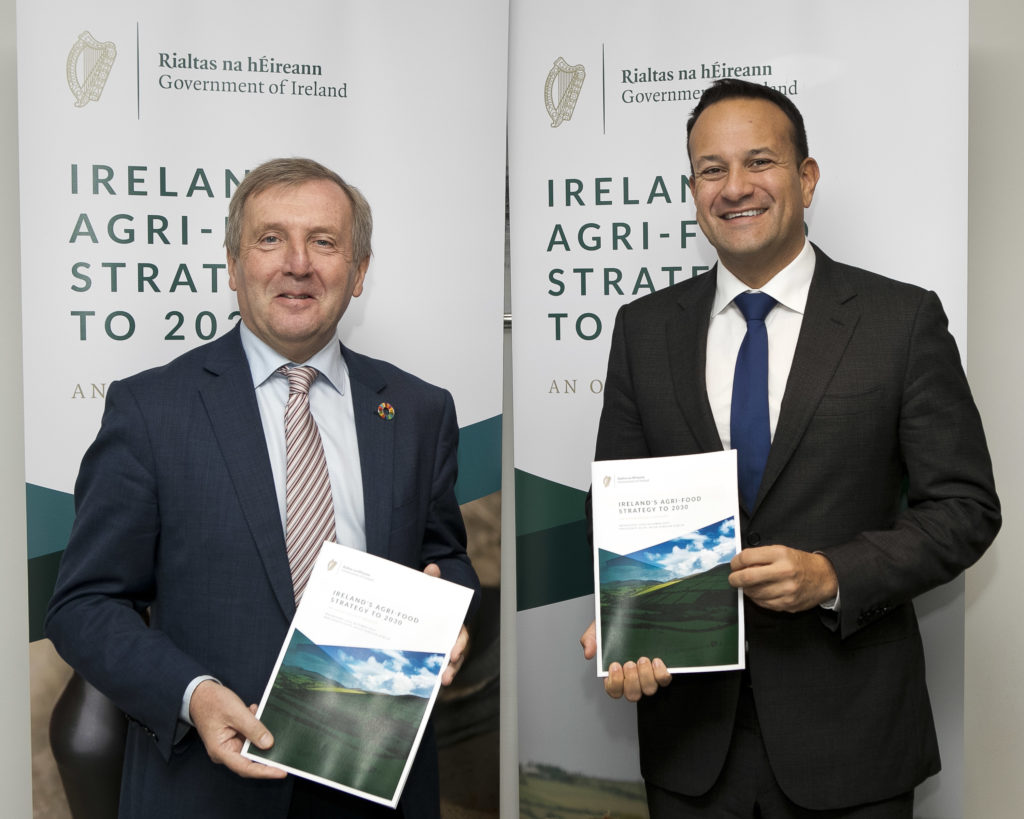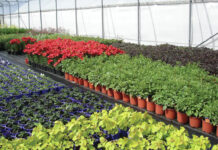

400 delegates from across Ireland’s agri-food sector participated at a conference today to develop a collective vision for the agri-food sector to 2030. Minister for Agriculture, Food and the Marine Michael Creed T.D. commented “This Open Policy Debate has been a significant milestone in the process for developing the next ten-year strategy for our most important indigenous sector. The discussions today have provided valuable insights, which will inform and advance this strategic planning process”.

An Taoiseach Leo Varadkar T.D. addressed the conference earlier in the day, acknowledging the vital contribution of the sector to the economy, “Agri-food production is our most important indigenous industry. The export value of the sector has grown by 73% over the last ten years. It is now approaching €14 billion – an extraordinary figure. Through FoodWise the Government wants to see this figure rise to €19 billion by 2025. The industry also makes an enormous contribution to employment – about 7.7% of total employment in our country. The Government’s ambition is to ensure that Irish agriculture continues to produce high quality, safe, traceable and nutritious food while protecting and enhancing the environment. The Government will continue to prioritise the Common Agricultural Policy and the budget for CAP.”
Delegates at today’s open policy debate discussed a range of themes, including global trends shaping the future of agri-food; a stocktake of the European and global policy environment; and the experience of another European country, the Netherlands, in developing a strategy for a new era.
Six thematic sessions then covered areas such as:
- Food insights and creating more value-added;
- Approaches to improving farm household viability;
- The role of technology in farming and food production;
- Environmentally sustainable farming and food;
- Protecting and enhancing consumer trust in the food chain; and
- Opportunities in the bioeconomy.


Minister of State Andrew Doyle T.D. remarked “On this World Food Day, it is timely that agri-food stakeholders had the opportunity to come together to consider how Ireland can grow on the success of Food Wise 2025. We should be proud of the fact that our produce reaches consumers in over 180 countries across the globe and while there are many challenges facing the sector, from farm incomes to the need for increased climate action, there are equally many opportunities”.
Referring to the Government’s commitment to this sector, Minister Creed said “Last week’s Budget prioritised supports for the agri-food and fisheries sector in the event of a no-deal Brexit. Today my Department is commencing payments of €747 million to farmers. Taken together with the ANC payments made in September, this means that over €930 million has issued to farmers in the last month, at a critical time when farmers face many of their largest annual bills”.
Concluding, Minister Creed said, “Notwithstanding the many changes in technology and society over the past 10 years, it is still critically important to get the fundamentals right when it comes to food – to produce good safe nutritious food, as sustainable as possible – economically, environmentally and socially.”
“The challenge of climate action is enormous – it is a fact that food production will result in carbon emissions and this is something that many seem to overlook. I think it is regrettable that some have taken a hostile approach to agriculture in the context of climate action. We need to change this narrative – in particular by demonstrating that we are doing all within our power, using the best available science and technology, to reduce and offset our emissions. Within the whole of the Government Climate Action Plan, reducing emissions and increasing carbon removals will contribute to the national effort in proportion to its footprint. Reconciling our ambitions for the development of the agri-food sector with the challenges of climate change will be one of the significant issues for policymakers and the industry as we enter the next decade.”









